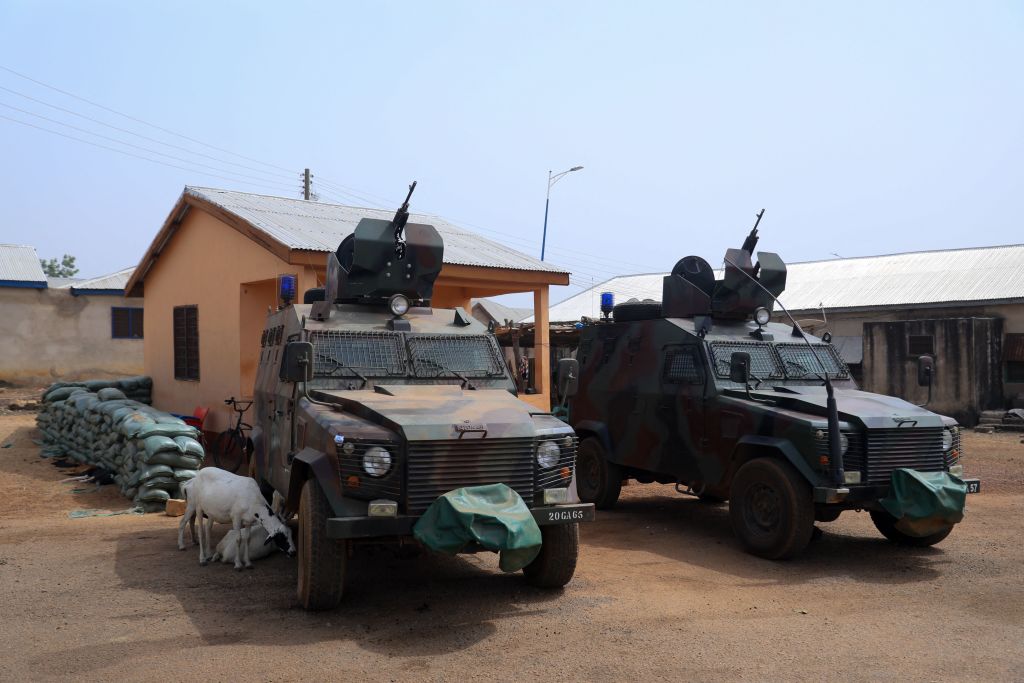Ghana is strengthening its northern border by building forward operating bases and deploying troops to a troubled town.
In a speech during a Government Accountability Series in July in Accra, Ghana’s then-Minister of Defence Dr. Edward Omane Boamah announced the plan, noting that terror groups are gaining ground in Burkina Faso and are determined to push south.
“If the terrorists overcome the system in Burkina Faso, Ghana becomes the next target,” Boamah said. “And that is what makes managing the situation in Burkina Faso and its environs very, very important. Because it will be one of the entry points.”
Tragically, Boamah and seven others, including Environment, Science and Technology Minister Ibrahim Murtala Muhammed, were killed in an August 6 helicopter crash. They were flying from Accra to Abuasi for an event to address illegal mining when their Z-9 helicopter went down. President John Dramani Mahama said the incident “left a shocked nation in pain” and said the country would observe three days of mourning.
A forward operating base is a military installation used to support strategic and tactical operations. They often are located closer to the front lines than main bases. In addition to the forward operating bases, Ghana’s Air Force announced the construction of a tactical air base in Jogboi, which will support troops operating at the northern border. It is expected to improve aerial surveillance, provide logistical support to forward operating bases and boost rapid military response capabilities in the north.
Ghana also has deployed 400 troops to the border town of Bawku, which has been hit by spasms of ethnic violence. The troops are part of Operation Maidabuuri II, which is aimed at increasing the military presence, bolstering intelligence gathering and fostering collaboration with northeast communities.
Although the violence in Bawku is between two ethnic groups, observers fear it could give terrorists a foot in the door to infiltrate northern Ghana.
“Security experts fear this escalation could push the area into deeper instability — especially as Ghana sits close to Burkina Faso, a country destabilized by jihadist insurgencies,” the Africa Report said in an article about the deployment. “There is growing concern that violent groups from across the border could exploit ethnic tensions, drawing Ghana further into regional conflict.”
Ghana is one of the few West African nations that has not been hit by a major terror attack by Sahel-based groups. In a July 2025 essay for The Conversation, security researchers Paa Kwesi Wolseley Prah and Timothy Chanimbe said the country’s methods should be replicated across the region. In 2020, Ghana set out a national framework for countering terrorism that has four pillars: prevent, preempt, protect and respond.
“This resilience is not accidental,” Prah and Chanimbe wrote. “It is the result of deliberate counter-terrorism strategies employed by Ghana’s security institutions.”
Ghana has emphasized interagency collaboration and joint training involving its Police Service, Immigration Service, Armed Forces and the National Intelligence Bureau. It has used technology at border crossings to identify possible terrorists and share the information among government agencies. It also has emphasized community engagement and invested in programs to address the root causes of terrorism and disenfranchisement among border communities, Prah and Chanimbe say.
“It addresses both immediate and underlying threats,” the authors wrote. “Ghana’s ability to balance prevention with security offers solutions for stability in a geopolitically volatile region.”

